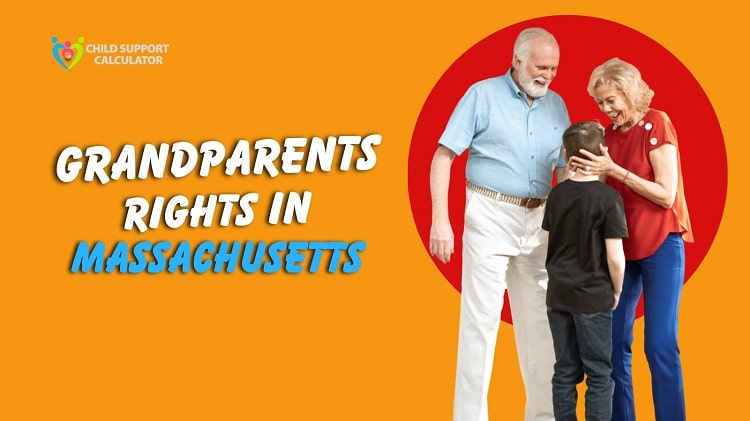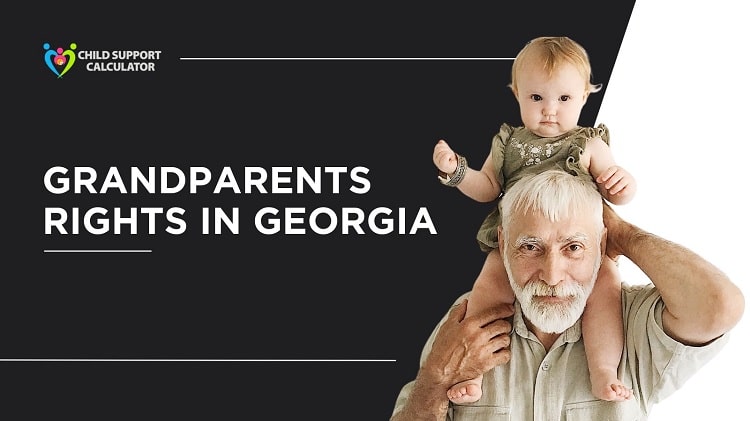Grandparents Rights In Massachusetts (Updated) 2024
Grandparents’ relationships with their grandchildren can be harmed by divorce, separation, or the death of one parent, especially if the surviving parent tries to limit their visits. This article outlines when and how grandparents in MA can ask for court-ordered visitation with their grandchildren and get grandparents rights in Massachusetts.

Grandparents Visitation Rights In Massachusetts
In MA, courts presume (expect) that parents can make decisions about how their children spend their time. Only if the grandchild is in danger will a judge authorize court-ordered grandparent visitation despite a parent’s objection under grandparents rights in Massachusetts. If the parent of your grandchild refuses to let you spend time with him or her, you must demonstrate that your visits are necessary for the child’s health, safety, or welfare.
The grandmother who requests visits bears the “burden of proof” (i.e., the responsibility to establish that spending time with the child will avert real or possible harm based on:
- Your current relationship with the child and your frequent contact with the youngster.
- After the parent’s divorce or one parent dies, the child’s desire for emotional care.
- The child’s physical or mental maltreatment at the hands of his or her parents (s).
If you can establish that spending time with you would prevent or reduce a significant risk of harm due to one or more of the aforementioned criteria, the court may grant your motion.
Financial Aid for Grandparents Who Are Raising Their Grandchildren
Grandparents who act as surrogate parents for their grandkids may face financial difficulties. The good news is that you and your grandson may be eligible for a number of financial aid programs, including:
- If your grandchild is under the age of five, you may be eligible for WIC (Women, Infants, and Children) assistance, which can assist with basic dietary needs.
- Depending on how much money your child “makes” in child support or other benefits, you may be eligible for grantee relative payments from the Department of Transitional Assistance.
- If one of the child’s parents dies, the youngster may be eligible for Social Security survivor benefits.
- Your child may be eligible for MassHealth coverage, which may include childcare or daycare help.
Getting Custody of Your Grandchildren
You have the right as a grandparent to guarantee the safety and well-being of your grandkids. If you believe they are in danger or a circumstance arises where you believe you require custody, you can go to one of two government departments, depending on the parents’ status:
The Probate and Family Court: When determining custody is a civil matter, or you believe your kid is in danger with their parents, you can get custody through court orders. You can ask for interim guardianship or permanent possession, depending on the situation.
The Department of Children and Families: If the kid was orphaned due to the death of their biological parents, the Department of Children and Families is responsible for finding adequate foster care. If you want to take your grandchild in, you’ll have to submit your case and convince the court that you’re the greatest and most appropriate guardian for the youngster.
Process:To get your grandchild’s custody and visitation order, you must file a “petition” (a formal written request) in court. In your petition, you must include your proposed visitation schedule, including the days and hours you want to see your grandchild.
You must notify everyone involved, including the child’s parents and anybody else who has filed for custody, once you’ve completed your request. If you already have a visitation order but want more time or the kid’s parent is stopping you from seeing your child, you can ask the court to “modify” (update) or enforce it.
Grandparents Visitation Rights If Grandchild Is Placed for Adoption
When a child is adopted by someone other than the surviving parent’s new spouse, grandparents rights in Massachusetts are terminated. You may, however, request visitation if your grandchild is placed in foster care, even if the temporary guardian disagrees.
Faqs
Grandparents have a legal right to reasonable visitation with their grandchildren during or after divorce or separation or following the death of one of the parents.
Regardless of the parents’ marital status, grandparents can seek court-ordered time with their grandkids. If you’re a paternal grandparent with an unmarried grandchild, your grandson must establish paternity before you can utilize your visitation rights.
A parent’s right to say the Constitution protects no. If a court order has been granted, the parent must petition the family court to alter or cancel the grandparent visiting order in order to halt the visitation.
If your grandparent refuses to return your child after a visit, you might consider limiting their access for their own safety. When a parent refuses grandparent visits, the law assumes that they are acting in the best interests of their child.
In Massachusetts, aunts, uncles, and grandparents are all considered potential kinship guardians. When DCF removes children from a legal caregiver’s home, these parties have custodial priority as family members.
It’s normal for parents to wonder when their child will be able to decide custody. In Massachusetts, children must be at least 18 years old before they can “decide” where they will reside. When a child is grown enough to have a logical opinion, MA courts must weigh his or her custodial preference.
If a child’s birth parent wishes to reclaim custody, they must file a court petition. The court may decide to restore the parent’s custody if it can be demonstrated that the parent’s circumstances have improved and that they are capable of providing proper care for the child.
42% of grandparents see their grandchildren once a week, while 22% see them every day. 48 percent of grandparents wish they could spend more time with their grandchildren; 46 percent believe they spend just the right amount of time with them, and 6% wish they see their grandchildren less frequently.
Grandparents do not have a legal obligation to support their grandchildren unless they are acting in the capacity of “in loco parentis,” or acting in place of one of the child’s parents.







